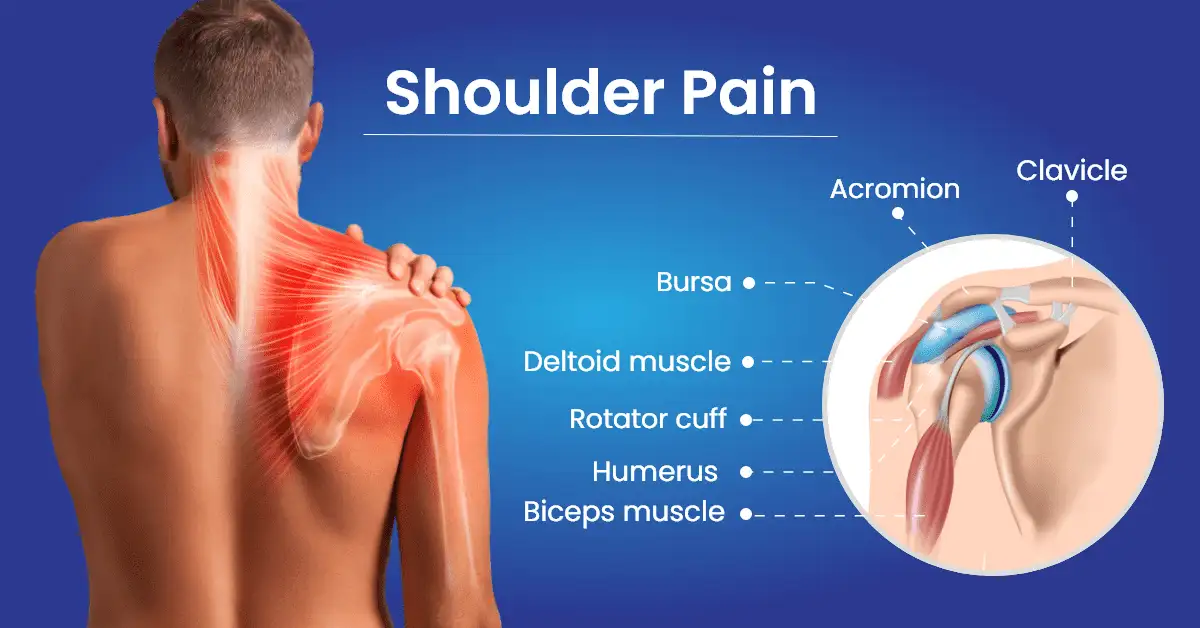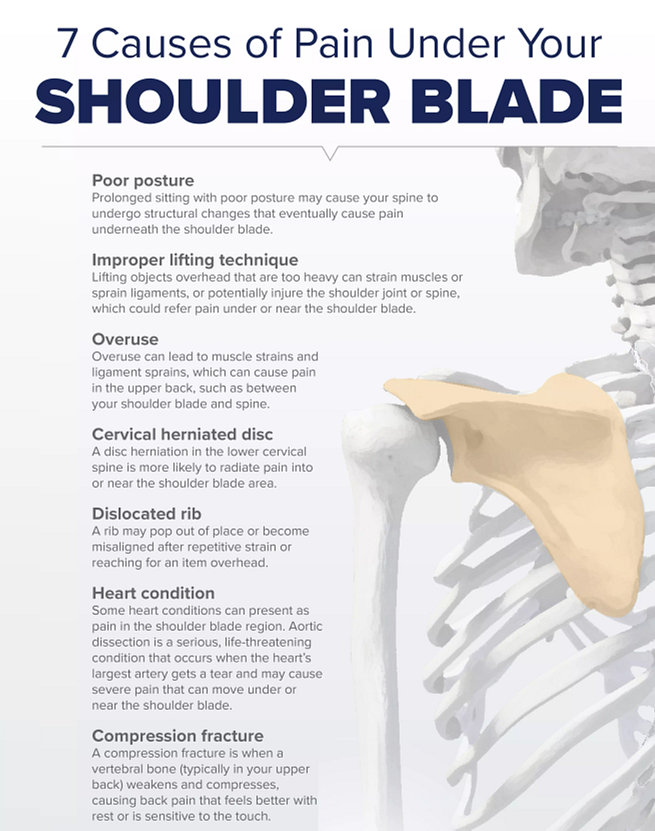
Shoulder pain refers to discomfort or pain felt in and around the shoulder joint, a complex structure comprised of bones, muscles, tendons, and ligaments. The shoulder is a highly mobile joint, allowing a wide range of motion, but this flexibility also makes it susceptible to various conditions that can lead to pain. Injuries resulting from trauma, such as dislocations or fractures, can cause acute pain and require immediate medical attention. Additionally, underlying medical conditions like arthritis or nerve compression may manifest as shoulder pain.
Shoulder pain can be caused by a variety of factors, ranging from common conditions to more serious underlying issues. Here are some common causes of shoulder pain:
Rotator Cuff Injuries: The rotator cuff is a group of muscles and tendons that surround the shoulder joint. Injuries, such as tears or strains, can lead to pain and limited range of motion.
Tendinitis: Inflammation of the tendons around the shoulder joint, known as tendinitis, can result from overuse, repetitive motion, or aging.
Frozen Shoulder (Adhesive Capsulitis): This condition is characterized by the stiffness and limited range of motion in the shoulder joint. It often develops gradually over time.
Arthritis: Osteoarthritis or rheumatoid arthritis affecting the shoulder joint can cause pain, swelling, and stiffness.
Shoulder Impingement Syndrome: This occurs when the shoulder tendons get pinched between the bones of the shoulder, causing pain, especially during overhead activities.
Fractures and Dislocations: Trauma or injuries, such as fractures or dislocations of the shoulder bones, can lead to acute pain and require immediate medical attention.
Overuse or Strain: Repetitive motions, heavy lifting, or poor posture can strain the shoulder muscles and lead to pain over time.
Torn Ligaments: Injuries to the ligaments that connect the bones in the shoulder joint can cause instability and pain.
If you are experiencing persistent or severe shoulder pain, it’s important to consult with a healthcare professional for a proper diagnosis and appropriate treatment. They can determine the underlying cause and recommend a suitable course of action, which may include physical therapy, medications, or, in some cases, surgical intervention.


Preventing shoulder pain involves adopting healthy lifestyle habits, maintaining good posture, and taking measures to protect your shoulders from injury. Here are some preventive measures you can take:
Maintain Good Posture: Be mindful of your posture, whether sitting or standing. Poor posture can contribute to shoulder pain. Keep your shoulders relaxed and avoid slouching.
Ergonomics at Work: If you have a desk job, ensure that your workstation is ergonomically designed. Adjust your chair, desk, and computer screen to maintain a neutral and comfortable shoulder position.
Avoid Overuse: Be cautious of repetitive activities that can strain the shoulder muscles. If your work or hobbies involve repetitive shoulder movements, take regular breaks to rest and stretch.
Cross-Train: Vary your exercise routine to avoid overloading specific muscles or joints. Cross-training can help distribute the workload across different muscle groups.
Maintain a Healthy Weight: Excess body weight can contribute to shoulder pain. Maintaining a healthy weight reduces the strain on your shoulders and promotes overall joint health.
Use Proper Sports Equipment: If you participate in sports or activities that involve the shoulders, ensure that you are using the appropriate equipment and gear. This includes well-fitted helmets, shoulder pads, and any other protective gear.
Listen to Your Body: Pay attention to any signs of discomfort or pain. If you experience persistent or worsening shoulder pain, consult a healthcare professional for evaluation and appropriate guidance.
By incorporating these preventive measures into your daily routine, you can reduce the risk of shoulder pain and promote overall shoulder health. If you have specific concerns or conditions, it’s advisable to consult with our registered healthcare provider or a physical therapist for personalized advice.